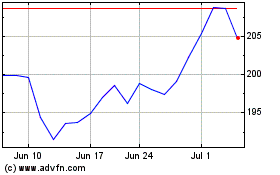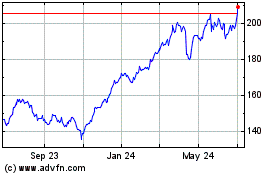FRANKFURT—A top European Central Bank official cautioned that
investors shouldn't assume the bank will aggressively beef up its
stimulus next month, saying that no decision has been made and that
all options are on the table.
"Sometimes I think people in the financial markets have to brush
up on their English lessons to understand when we say nothing yet
has been decided for March," ECB Executive Board member Yves Mersch
said in an interview with The Wall Street Journal. "It is not our
communication which is flawed, it is the hype that is being
provoked by people with vested interests."
Mr. Mersch's comments follow a series of speeches by ECB
President Mario Draghi underlining the bank's readiness to boost
its stimulus next month to combat stubbornly low inflation, and
underscore the challenge faced by central bankers as they seek to
guide markets with their words, but maintain policy flexibility to
adapt to changing circumstances.
Mr. Mersch said the ECB "will obviously reconsider" its slate of
stimulus programs at its next scheduled meeting March 10, in light
of new economic forecasts that are likely to show weakening
inflation. "Everything is on the table," he said.
He also pointed to "a lot of positive developments" in the
eurozone economy and a rebound in oil prices, and said investors
were misjudging the impact of the ECB's addition to its stimulus at
its meeting in December. Stock markets are only about 10% below
their record highs, which "is not exactly a crash," he said.
"If you would look at what we communicate, I think this is quite
clear. The situation has changed since December, we will re-examine
and reassess and possibly, if needed, also correct," said Mr.
Mersch, former governor of Luxembourg's central bank, and the
longest-serving member of the ECB's 25-member governing.
At a punchy news conference in January, Mr. Draghi surprised
investors with a pledge to "review and possibly reconsider" the
ECB's stimulus at its March meeting, and not to "give up" in the
face of ultralow inflation.
Markets reacted positively to what they interpreted as a strong
signal that additional stimulus was imminent, sending eurozone
share and bond prices higher and weakening the euro.
Mr. Mersch's comments suggested the ECB believes investors may
not have given the bank's December stimulus measures sufficient
credit. These included a reduction in the already negative deposit
rate, a six-month extension of the quantitative-easing program, and
a decision to reinvest principle payments on the bonds it holds.
Investors were disappointed by the package, driving stocks lower
and the euro higher against the dollar.
"Some of our measures that we have decided in December will last
until 2019," said Mr. Mersch, noting that the additional bond
buying stimulus in December totaled about €680 billion.
A number of bank economists have recently raised their
expectations for the ECB's March meeting. Berenberg, J.P. Morgan
and Royal Bank of Scotland now expect the ECB to increase its
monthly bond purchases by at least €10 billion from €60 billion
currently, and to cut its deposit rate—now at minus -0.3%—by at
least a further 0.1 percentage point.
Mr. Draghi has done little to damp investors' hopes. In a speech
in Strasbourg on Monday, he warned that inflation was " tangibly
weaker" than the bank had expected in December, and reiterated the
need to "review and possibly reconsider" the ECB's stimulus in
March.
Mr. Mersch said the annual rate of inflation—which was 0.4% in
January—would probably turn negative between spring and early
summer. "This brings us into a zone of discomfort," he said.
The debate taking place within the ECB is whether to treat this
as a temporary response to the sharp drop in oil prices, which
could be looked through, or whether it might feed through into
wages and other prices.
Jens Weidmann, the President of Germany's central bank, the
Deutsche Bundesbank, parked himself firmly in the former camp last
week, warning that the ECB shouldn't fixate on current inflation
rates "like a rabbit staring at a snake."
Mr. Mersch appeared to sympathize with that position, pointing
to positive developments in the eurozone economy, including the
drop in oil prices, which gives companies added leeway in making
new investments or repairing their balance sheets. Indeed, he said
that the bulk of the risks facing the economy are from abroad,
including growth concerns in China and other emerging markets.
"If we only had the domestic economy, I would not say that the
downside risks have increased. From the domestic point of view, we
might be at neutral."
Mr. Mersch, who has been on the ECB's Governing Council since
the late 1990s, said the past two decades taught him humility when
it comes to fine-tuning the economy.
"I still perceive central banks as being able to have a
longer-term view of the situation, and it is quite important to
continue to have such an actor in the economy and society," he
said.
Write to Tom Fairless at tom.fairless@wsj.com and Brian
Blackstone at brian.blackstone@wsj.com
(END) Dow Jones Newswires
February 02, 2016 13:35 ET (18:35 GMT)
Copyright (c) 2016 Dow Jones & Company, Inc.
JP Morgan Chase (NYSE:JPM)
Historical Stock Chart
From Mar 2024 to Apr 2024

JP Morgan Chase (NYSE:JPM)
Historical Stock Chart
From Apr 2023 to Apr 2024
